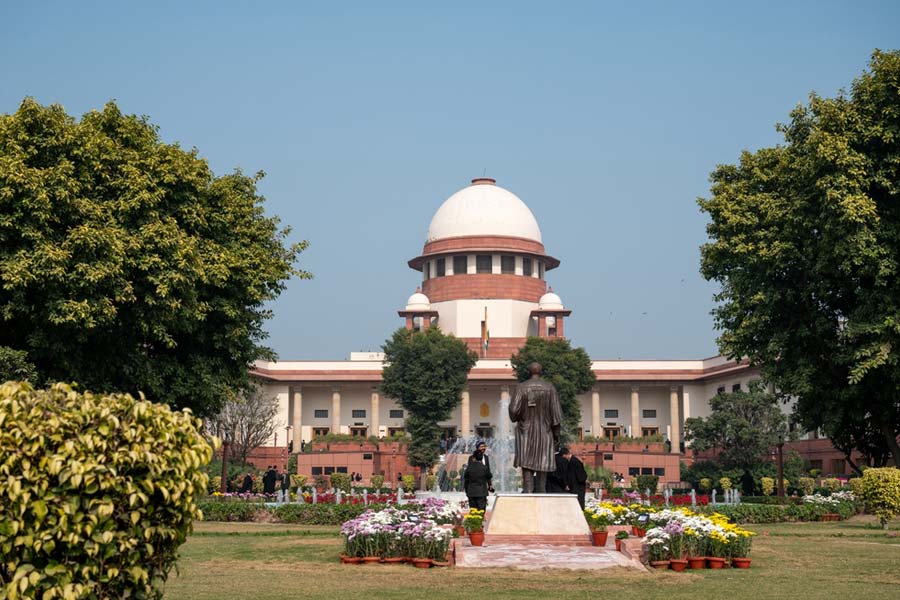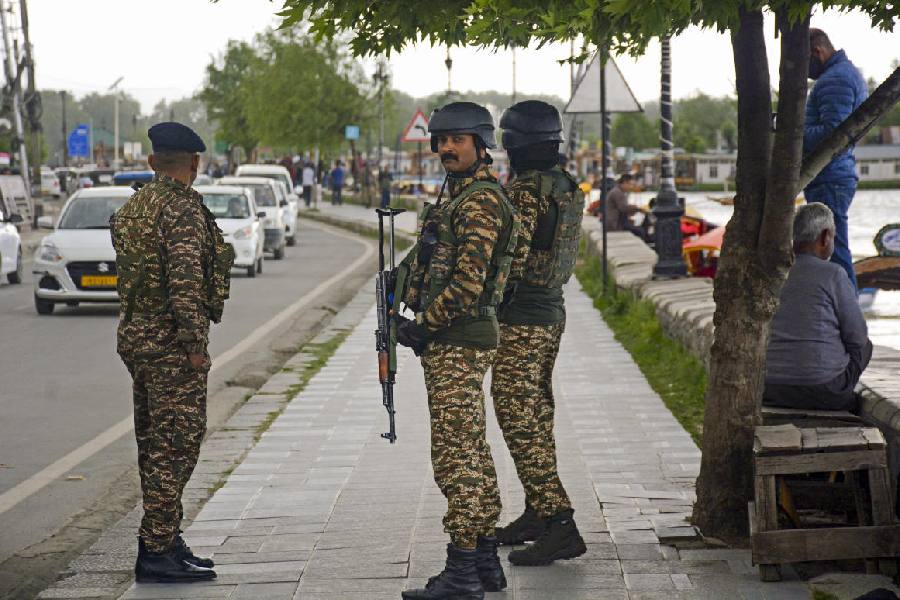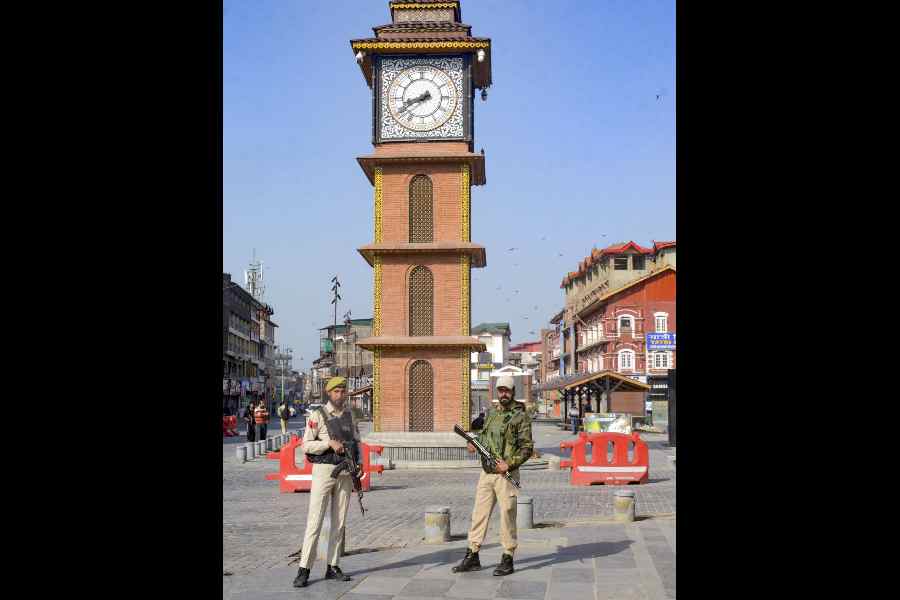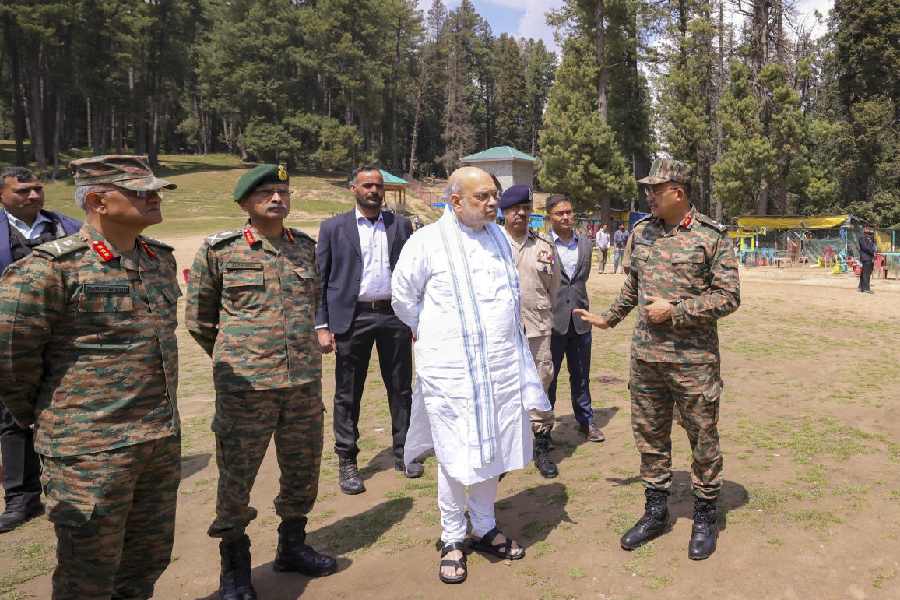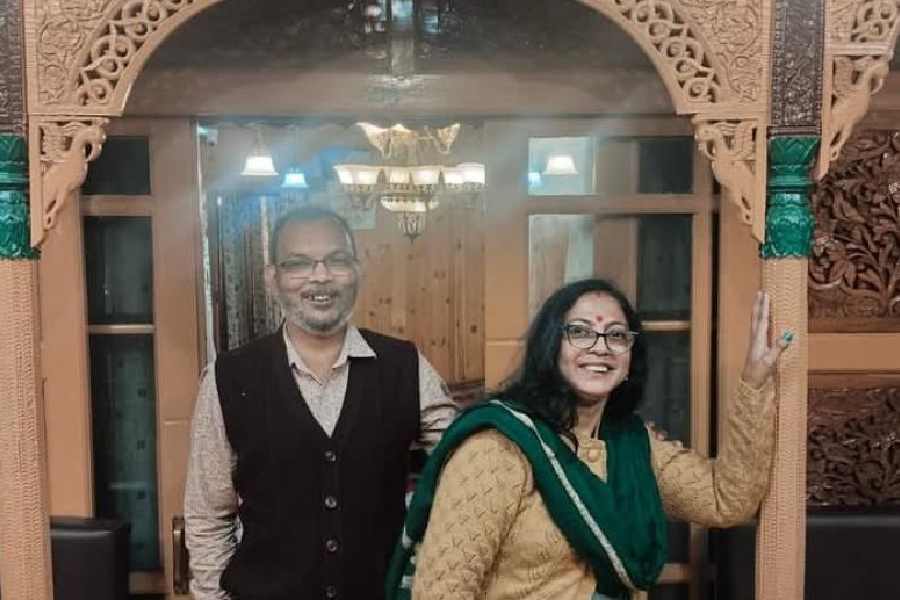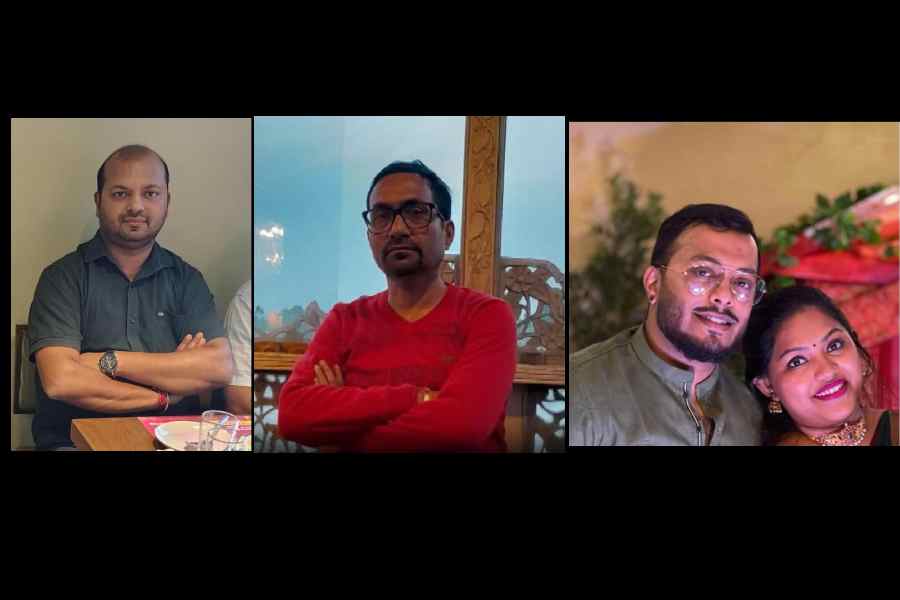The Supreme Court on Monday asserted “a complete breakdown of rule of law” in Uttar Pradesh, with civil suits being converted into criminal cases “day in and
day out”.
Saying this happened because of investigating officers’ failure to submit clear and detailed chargesheets — as directed by the apex court — the bench asked the state director-general of police to file an affidavit within two weeks on the subject.
People are normally not sent to jail in civil cases, unlike criminal cases.
“There is a complete breakdown of rule of law in Uttar Pradesh. Converting civil cases into criminal matters is not acceptable,” Chief Justice Sanjiv Khanna observed orally during a hearing.
“This is very wrong. This is happening. It is strange that it is happening day in and day out in Uttar Pradesh.”
The bench, which included Justice Sanjay Kumar and Justice K.V. Viswanathan, stayed criminal proceedings against Debu Singh and another person who had challenged Allahabad High Court’s refusal to quash the criminal case registered against them.
The duo have been booked for cheating, breach of trust and criminal conspiracy in a matter that they claim involved a purely financial transaction.
The two accused are said to have defaulted on some payments, following which the complainant filed a criminal case. The trial court issued summons and the high court declined to quash the criminal case.
“Every day, civil suits are being converted into criminal cases. It is absurd. Merely not giving money cannot be turned into a criminal offence,” Justice Khanna observed.
The bench noted that it had in Sharif Ahmed vs State of UP last year passed guidelines asking investigating officers to fill in all the details in the chargesheet to make it easier for the magistrate to decide whether to take cognisance of the matter.
It said these guidelines had not been complied with in the present case, and it was time that the investigating officer (IO) learnt his lesson on filing chargesheets.
“This is not the way you file a chargesheet. Let the IO learn a lesson,” the bench said, indicating it would direct the officer to appear in the witness box and justify his action before the trial court.
Later, the bench dictated an order directing the DGP and the IO (of Noida police) to file an affidavit each within two weeks stating whether they had complied with the apex court’s directives in the Sharif Ahmed case.
The Sharif Ahmed judgment had said: “The nature and standard of evidence to be elucidated in a chargesheet should prima facie show that an offence is established if the material and evidence is proven.
“The chargesheet is complete where a case is not exclusively dependent on further evidence and the trial can proceed on the basis of evidence and material placed on record with the chargesheet.
“(The) role played by the accused in the crime should be separately and clearly mentioned in the chargesheet for each of the accused persons.”

